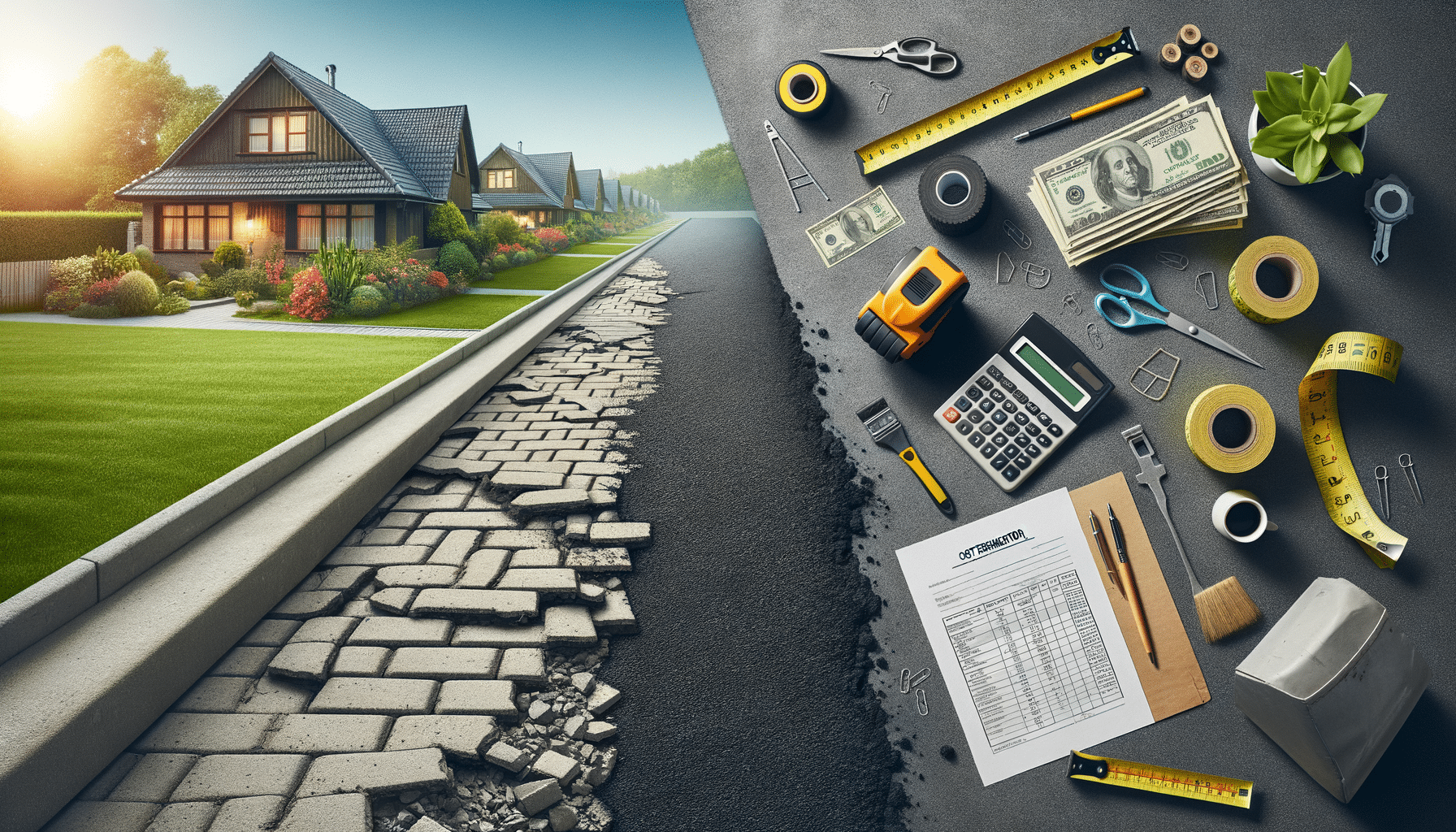
Understanding Asphalt Driveway Replacement Costs
Introduction to Asphalt Driveway Replacement
Asphalt driveways are a popular choice for homeowners due to their durability and aesthetic appeal. However, like any other surface, they eventually require replacement. Understanding the costs involved in replacing an asphalt driveway is essential for budgeting and planning. This article delves into the various factors that influence these costs, helping you make informed decisions about your driveway replacement project.
Factors Affecting Asphalt Driveway Replacement Costs
Several factors influence the cost of replacing an asphalt driveway. One of the primary considerations is the size of the driveway. Larger driveways require more materials and labor, increasing the overall cost. Additionally, the condition of the existing driveway plays a significant role. If the base is damaged or requires extensive preparation, it can add to the expenses.
Location is another critical factor. Costs can vary significantly depending on regional material and labor prices. Urban areas might have higher costs due to increased demand and overhead expenses. On the other hand, rural areas may offer lower prices but could incur additional charges for transportation of materials.
Furthermore, the quality of materials chosen can impact the total cost. Opting for higher-grade asphalt or additional features like decorative edges or sealants will increase the expense. It’s essential to weigh these options against your budget and the longevity you desire for your driveway.
Breaking Down the Costs: Materials and Labor
When estimating the cost of an asphalt driveway replacement, it’s crucial to consider both materials and labor. Material costs typically include the asphalt itself, which can vary in price based on quality and availability. Additional materials might include gravel for the base and sealants for finishing.
Labor costs encompass the preparation, installation, and finishing of the driveway. This includes removing the old asphalt, preparing the base, laying the new asphalt, and applying any finishing touches. It’s advisable to obtain multiple quotes from contractors to ensure competitive pricing and quality workmanship.
Some homeowners may consider DIY options to save on labor costs. However, this approach requires a thorough understanding of the process and access to the necessary equipment. Mistakes can be costly, so it’s often recommended to hire experienced professionals for such projects.
Comparing Asphalt with Other Driveway Materials
While asphalt is a popular choice, it’s worth comparing it with other materials like concrete, gravel, and pavers. Each material has its advantages and drawbacks, affecting the overall cost and longevity of the driveway.
Concrete driveways, for instance, tend to last longer than asphalt but come with a higher initial cost. Gravel is a more affordable option but may require more frequent maintenance. Pavers offer a unique aesthetic but can be expensive to install.
Ultimately, the choice of material should align with your budget, aesthetic preferences, and the climate of your region. Asphalt remains a favored option for many due to its balance of cost, durability, and appearance.
Conclusion: Planning Your Asphalt Driveway Replacement
Replacing an asphalt driveway is a significant investment, but understanding the costs and factors involved can help you plan effectively. By considering the size, location, material quality, and labor required, you can create a realistic budget for your project. Comparing asphalt with other materials can also provide insights into the best choice for your needs.
Ultimately, careful planning and consultation with professionals can ensure your driveway replacement meets your expectations in terms of cost, durability, and aesthetics. Whether you choose asphalt or another material, a well-executed driveway can enhance the value and appeal of your property.